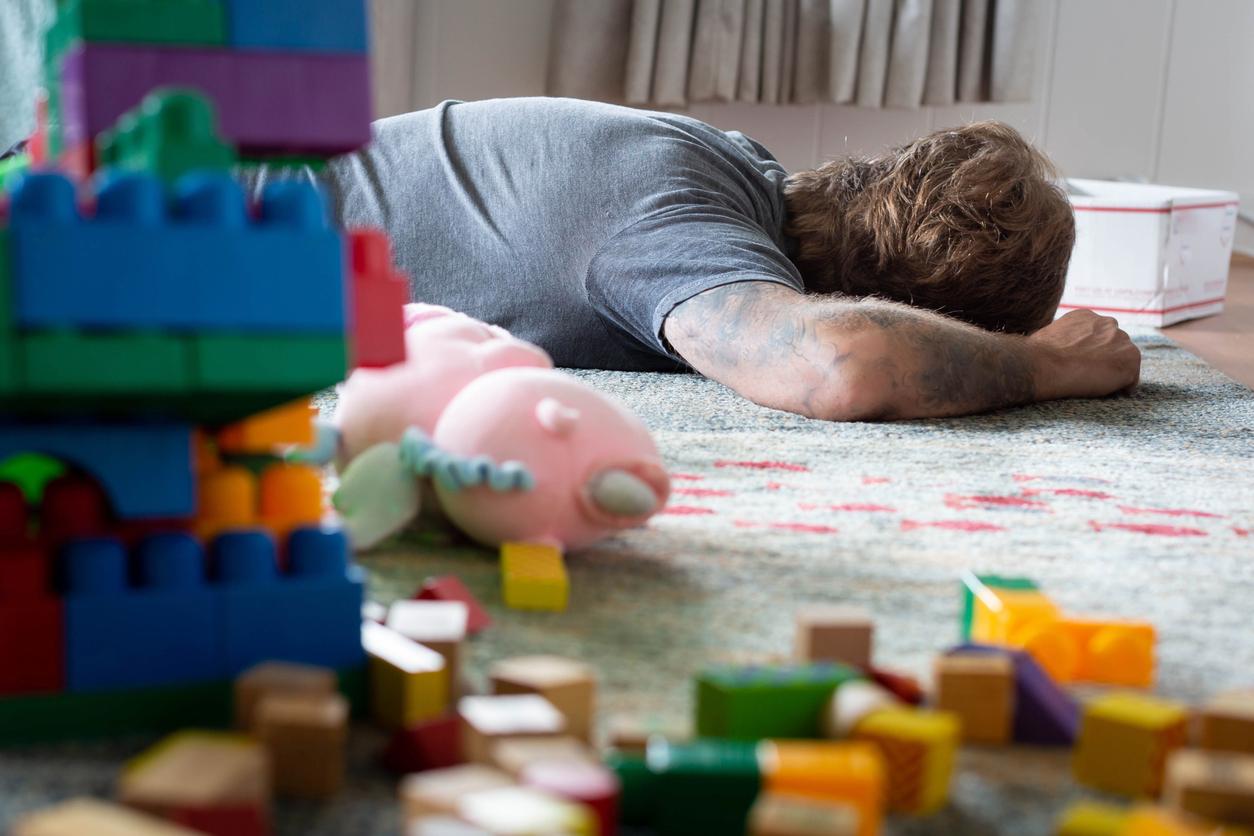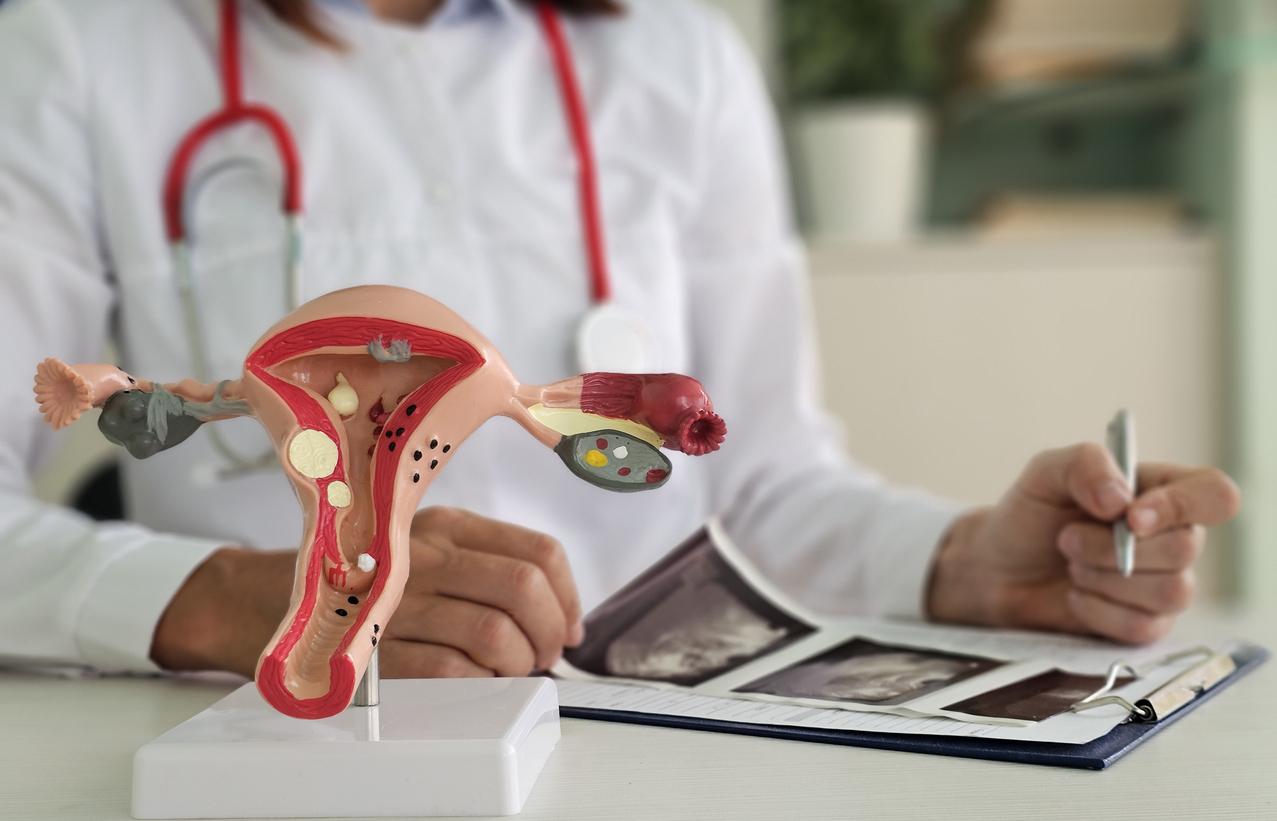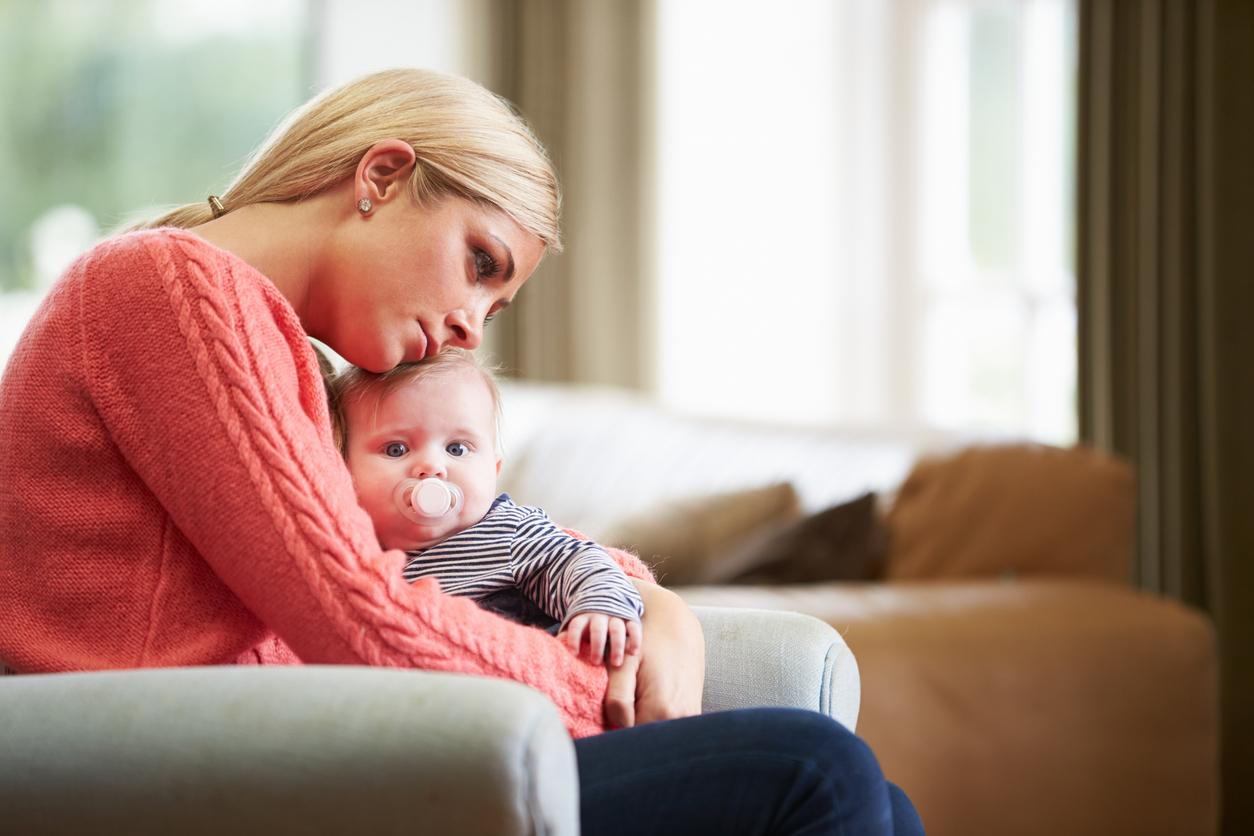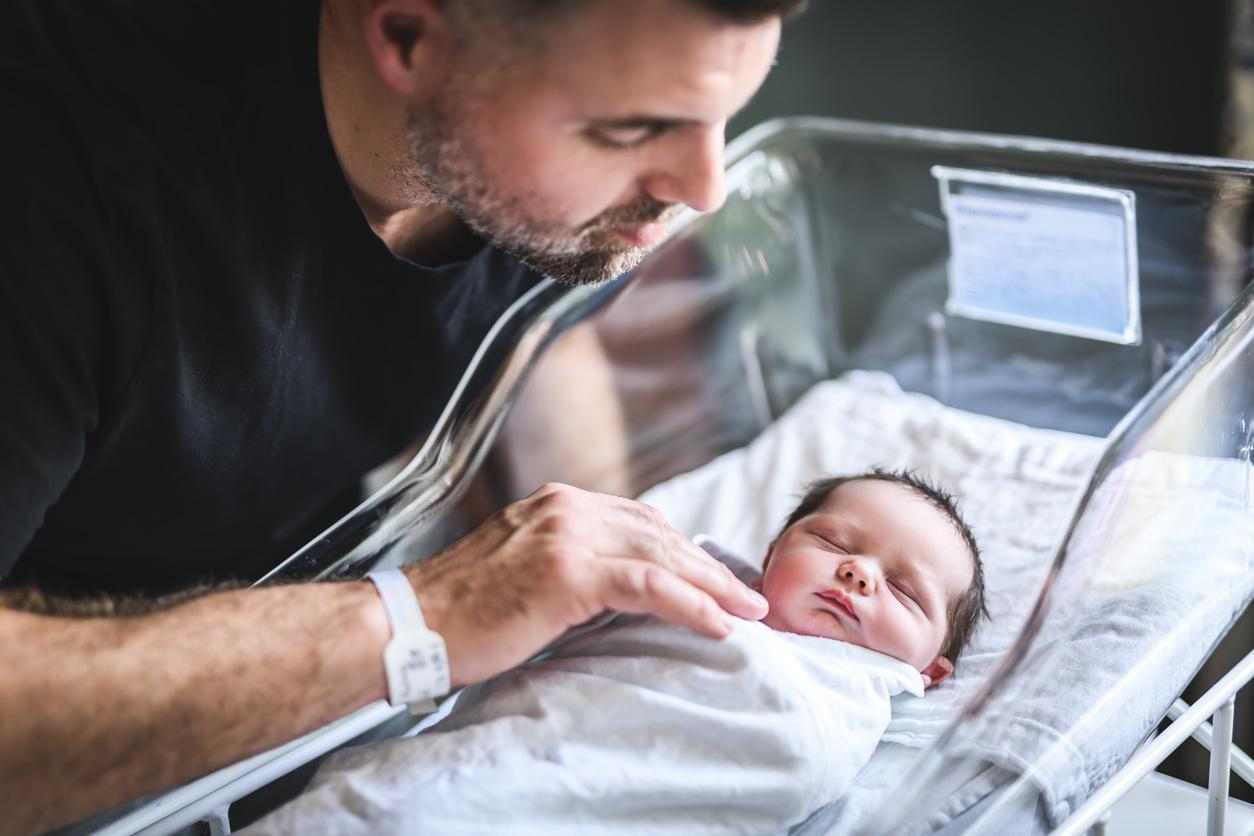When examining and caring for babies, health professionals should try to identify signs of postpartum depression in men, as their well-being is vital to the overall health of families.

- In men, postpartum depression, which impacts quality of life and family well-being, typically occurs three to six months after the postpartum period.
- American researchers stress the importance of screening new fathers, 30% of whom tested positive for postpartum depression in a pilot study.
- Participants felt a significant lack of sleep and noted a strong feeling of fatigue.
Until recent decades, postpartum depression, which occurs in the weeks following childbirth, was associated only with women, who experience more dramatic physical and hormonal changes during the postpartum period. However, men are not immune to depressive episodes, which typically occur three to six months after the postpartum period. In fact, most experts estimate that about 10% of fathers will experience the condition, compared with 14% of mothers. Previous research has shown that new fathers may experience a drop in testosterone levels after the birth of their child, which is associated with mood swings.
Postpartum depression: “They don’t have a detailed plan on how to become a father”
In light of these data, researchers from Illinois in Chicago (USA) have indicated that men should be systematically screened for postpartum depression. This suggestion is part of aa pilot study whose goal is to change the conversation about men’s mental health by providing stronger support to the entire family unit. Because yes, postpartum depression in fathers is a risk factor for poorer quality of life and developmental and relational harm within families. “Often, they feel overwhelmed by the new experience. They try to find a way to adapt, but they don’t have a detailed plan for how to become a father.”said Sheehan Fisher, a psychologist at Northwestern Memorial Hospital in Chicago.

New fathers felt sleep deprivation and fatigue
For the study, the authors recruited 24 new fathers, many of whom were young first-time parents and worried that they were not good at parenting. They screened them using the Edinburgh Postnatal Depression Scale, which is used with mothers. According to the results, 30% tested positive for postpartum depression. Most participants reported significant sleep deprivation and feelings of fatigue. Several said that the need for financial support conflicted with the desire to meet the increasing needs of mother and baby. The team found that new fathers were focused on ensuring that their birthing partner was doing well and tended to neglect their own wellbeing and mental health.
“Usually the only conversations about an infant’s father during exams are about domestic violence,” “However, asking men, who are generally less likely to seek help, about their mental health and well-being during baby checkups could help detect postpartum depression,” said Sam Wainwright, lead author of the study. “For me, it’s about taking a stand and telling men that you matter, your health matters!” added the researcher.















